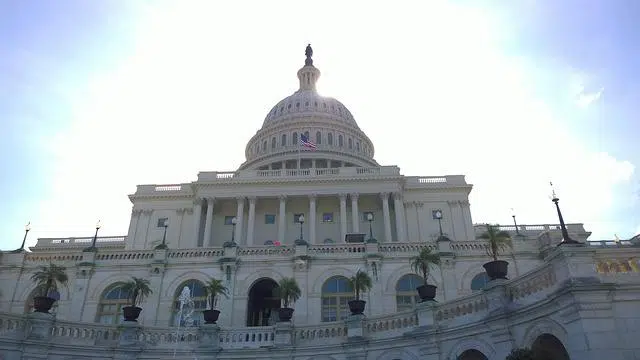With Congress scheduled to adjourn Dec. 15, Sen. Dick Durbin, D-Ill., made a last-minute push on the Senate floor late Thursday, calling for a vote on the Credit Card Competition Act before adjournment.
Durbin’s remarks, which also pushed back against arguments by card networks and card issuers that the proposed legislation will harm consumers and their ability to earn credit card rewards, came hard on the heels of comments he made earlier in the week to Punchbowl News that passage of the CCCA by year’s end was “a long shot.” Punchbowl News is an online political news daily based in Washington, D.C.
In the Punchbowl News article, Durbin said Congress has a full agenda of items of address before adjournment, leaving “a limited amount of time” to pass his credit card bill.

The CCCA would require financial institutions with $100 billion or more in assets to enable at least one network other than Visa or Mastercard for credit card transaction processing.
In his remarks to the Senate, Durbin took CCCA opponents to task, noting that a recent report found that “Visa, Mastercard, and the trade groups they fund” have spent $51 billion since the CCCA was first introduced in 2022 trying to convince legislators and consumers that passage of the bill would reduce card issuers’ ability to fund credit card rewards, such as popular frequent-flier miles “They recruited some allies to breathlessly claim that my bill would make frequent-flier rewards [from card issuers] disappear,” Durbin said.
Later in his remarks Durbin said: “Let me repeat, my bill is not coming after your rewards program or any other program and any effort by the airline industry or big banks is just a scare tactic. They are feigning concerns for hard-working Americans to protect their bottom line.”
Durbin went on to note that unions such as the International Brotherhood of Teamsters and the Service Employees International Union have endorsed the CCCA and that, last month, a group of organizations representing workers, small businesses, and consumer advocates, launched a group called the Lower Credit Card Fees Coalition to dispel what it claims are myths surrounding the CCCA. The group is also calling for Congress to pass the legislation.
After Durbin’s remarks, the Merchant Payments Coalition, a merchant lobby that supports the CCCA, issued a statement agreeing with Durbin’s call that the bill be voted on by year’s end. “We agree with Senator Durbin completely,” MPC Executive Committee member and National Association of Convenience Stores General Counsel Doug Kantor said in a statement. “The sponsors of this legislation were promised a vote, and it’s time to make good on that promise. Small businesses and families can’t afford to suffer another day under these outrageous fees.”
In response to Durbin’s Senate remarks, the Electronic Payments Coalition, a group representing card issuers and networks, issued a statement from its executive chairman, Richard Hunt. Hunt argued Durbin’s comments were meant to appease large retailers backing the CCCA because of comments the Senator made earlier in the week about what he viewed as the slim prospects of the CCCA coming up for a vote by year’s end.
“There’s nothing like a career politician predicting what a successful business might or should do,” Hunt said in a statement. “Sen. Durbin spoke today to appease the corporate mega-store lobbyists at Walmart, Target, and Home Depot funding his campaign to impose new mandates on your credit card.”
“The 2010 Durbin bill eliminated free checking and debit rewards programs and increased card fraud—why should we believe going down the same path with credit cards would lead to a different result,” Hunt added. “There is a reason every community bank and credit union in America is opposed to the Durbin-Marshall bill – because it is bad for local communities and economies.” Durbin in 2010 backed what ultimately became the Durbin Amendment, which regulates the routing and pricing of debit card transactions.
While time is running out in the current session for a full debate on the CCCA before the Senate votes on the legislation, one concern opponents have is that the bill could be tacked on to another piece of legislation that gets passed before Congress adjourns next week.
“There aren’t a lot of calendar days left this session, but we are not letting our guard down in case there is an effort to add this to the last train leaving the station,” says an EPC spokesperson.





